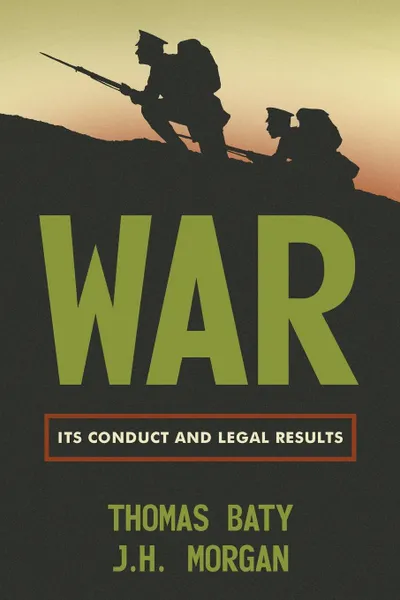War. Its Conduct and Legal Results 12+
Автор: Thomas Baty,
J. H. Morgan
2014
610 страниц
Категория: Право
ISBN: 9781616194024
Язык: Английский
📓 Legal Ramifications of the First World War. Originally published: New York: E.P. Dutton and Company, 1915. xxviii, 578 pp. The authors argue that the First World War effectively ended the existing system of international law, a system that was already in decline due to the growing economic and political interdependence of states. These changes have created a new set of problems that will provide the basis of a new system of international law when the war ends. In addition to supplying an intellectual framework for this new system, Baty and Morgan address practical topics, such as international arbitration, and more abstract issues, such as the clash between nationalism and cosmopolitanism. "[V]ery good reading....It is a thoughtful book." --T.S.W., Yale Law Journal 19:313-314. THOMAS BATY [1868-1954] taught law at Oxford University and was a joint secretary of the International Law Association. In 1915, the year War was published, Baty became the foreign legal advisor to the Japanese government and moved to Japan. He is also the author of the well-known work, International Law (1909) and International Law in Twilight (1954). J.H. MORGAN [1876-1955] was a Liberal candidate for Parliament in 1910. A legal editor of the Encyclopedia Britannica (14th edition), he was professor of constitutional law at the University of London and legal adviser to the War Crimes Commission at Nuremberg from 1947 to 1949.
Мнения
